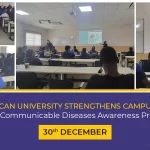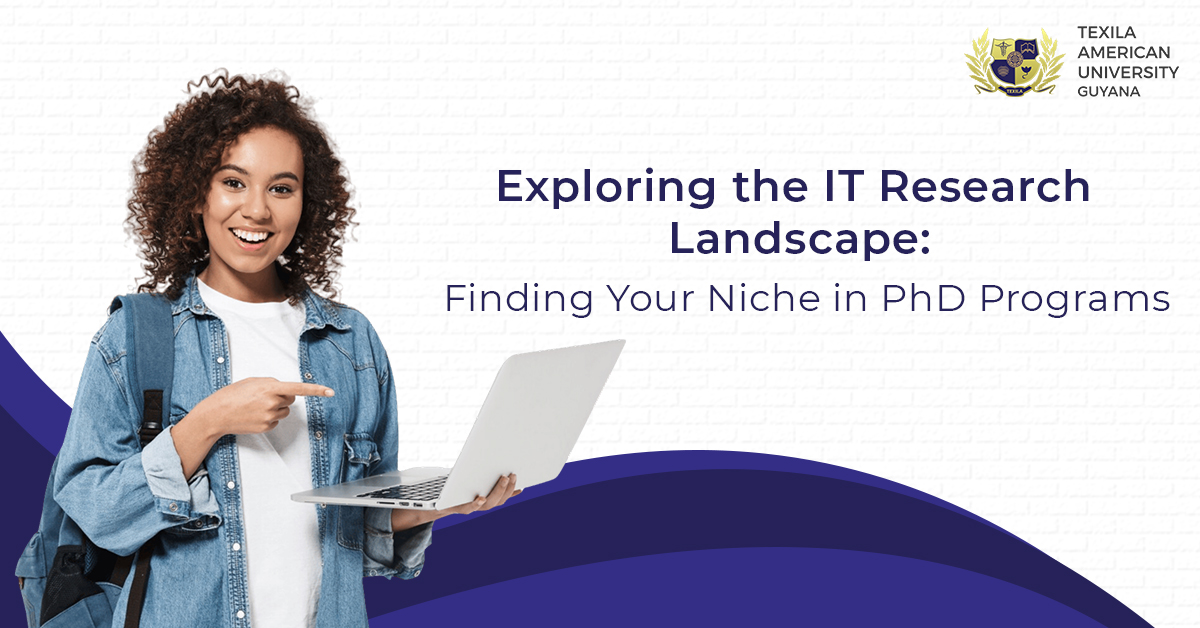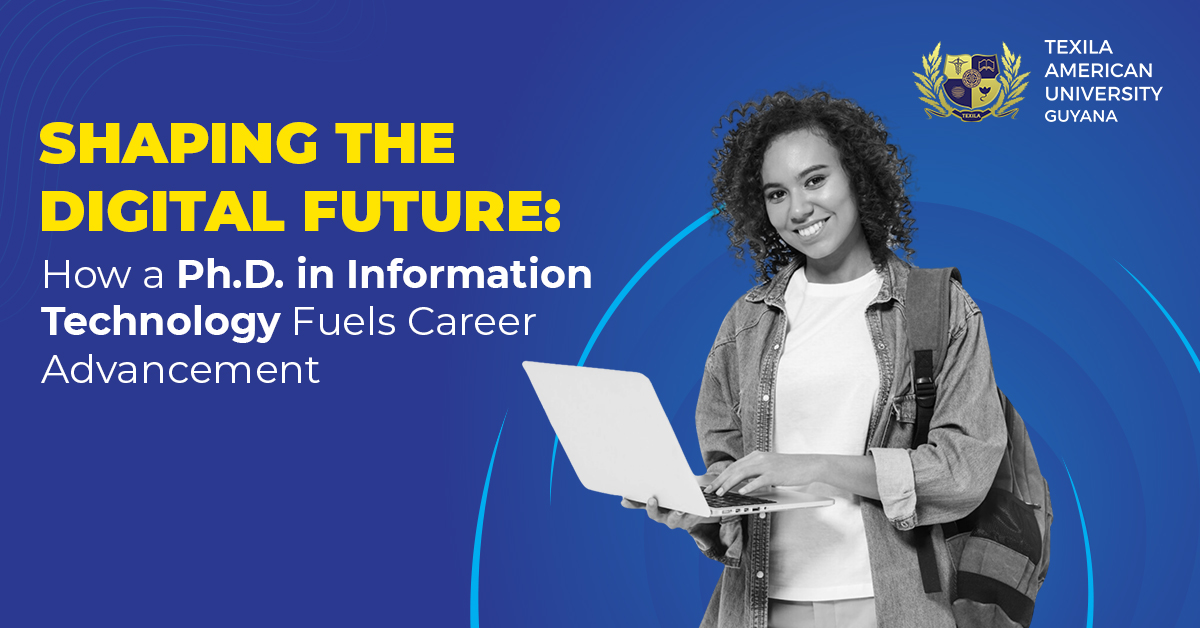Pursuing a PhD in Information Technology in Ghana requires strategic planning and resilience. Start by setting clear research objectives aligned with your career goals, breaking them into manageable milestones. Build a strong support network through mentorship and collaboration, and utilize institutional resources. Prioritize self-care to maintain work-life balance and embrace continuous learning to stay updated on emerging trends. Develop robust research skills, including mastering methodologies and data analysis, and enhance communication to effectively present your findings. Network by attending conferences, joining professional associations, and participating in research groups. Manage your time effectively with realistic deadlines and productivity tools, and stay resilient by celebrating small victories and seeking peer support. Implementing these strategies will help you navigate the challenges of a PhD and achieve success.
Setting Clear Goals for PhD journey
- Defining Your Research Objectives : The first step on your PhD journey is to clearly define your research objectives. What specific problem do you want to solve or contribute to in the field of IT? Clear objectives will serve as your guiding light, helping you stay focused and motivated. This clarity will also make it easier to communicate your research goals to others, whether it’s your advisor, peers, or funding bodies.
- Aligning Goals with Personal and Professional Aspirations : Your PhD research should align with your personal interests and professional aspirations. Ask yourself how your research will contribute to your long-term career goals. This alignment ensures that you remain passionate and motivated, even when the going gets tough. For instance, if you aspire to work in cybersecurity, tailoring your research to address key issues in this area can provide a strong foundation for your future career.
- Establishing Milestones and Timelines : Breaking down your overarching research goals into manageable milestones and timelines is crucial. Set specific, achievable goals for each stage of your PhD. This approach not only makes the workload more manageable but also allows you to track your progress and stay on course. Celebrate small victories along the way to keep yourself motivated.
Building a Support Network for PhD
- Cultivating Mentorship Relationships : Mentorship is a key component of a successful Online PhD in Information Technology journey. Seek guidance from experienced mentors who can provide valuable insights and advice. These mentors can be faculty members, industry professionals, or even advanced PhD students. A good mentor will not only guide you academically but also offer support during challenging times.
- Fostering Collaborative Partnerships : Collaboration is essential in the field of IT. Engage with peers, colleagues, and experts in your field to expand your network and gain diverse perspectives on your research. Collaborative projects can lead to co-authored papers, shared resources, and new research opportunities. They also provide a support system where you can share ideas and receive constructive feedback.
- Utilizing Institutional Resources : Your academic institution offers a wealth of resources that can support your PhD journey. These include research facilities, funding opportunities, academic workshops, and more. Make sure to familiarize yourself with these resources and take full advantage of them. Attend workshops and seminars to enhance your skills and knowledge.
Prioritizing Self-Care
- Embracing Work-Life Balance : Maintaining a healthy balance between your academic commitments and personal well-being is crucial. Prioritize self-care activities, hobbies, and leisure time. A well-balanced lifestyle enhances productivity and prevents burnout. Remember, your mental and physical health are just as important as your academic achievements.
- Cultivating Mindfulness Practices : Incorporating mindfulness practices such as meditation, yoga, or journaling into your daily routine can reduce stress and enhance your overall well-being. Mindfulness helps you stay focused and present, making it easier to tackle complex research problems. Find mindfulness techniques that resonate with you and make them a part of your routine.
- Seeking Support and Counseling : Don’t hesitate to seek support from counseling services or support groups if you’re feeling overwhelmed. Mental health is a critical component of your overall well-being. Many academic institutions offer free or low-cost counseling services for students. Utilize these resources to manage stress and stay mentally healthy.
Embracing Continuous Learning
- Staying Current with Emerging Trends : The field of IT is constantly evolving. Stay updated on the latest advancements and trends by attending conferences, workshops, and seminars. Subscribe to relevant journals and newsletters to keep abreast of new developments. This continuous learning ensures that your research remains relevant and cutting-edge when pursuing a PhD in Information Technology Programs.
- Seeking Feedback and Iterating : Be open to feedback from your mentors, peers, and reviewers. Constructive criticism is invaluable for refining your research. Use feedback to make iterative improvements, enhancing the quality and impact of your work. Regularly discuss your progress with your advisor and seek their input on how to improve your research in the context of an Online PhD in Information Technology.
- Exploring Interdisciplinary Perspectives : Exploring interdisciplinary approaches can bring fresh insights and innovative solutions to your research projects. Collaborate with researchers from other fields to integrate different methodologies and perspectives. This interdisciplinary approach can lead to groundbreaking research and new opportunities, especially within the framework of an Online PhD in Information Technology.
PhD gives you Developing Research Skills
- Mastering Research Methodologies : Developing strong research skills is essential for success in a PhD IT program. Master various research methodologies and techniques relevant to your area of study. Take courses and attend workshops to build your skills. Understanding different research methods will allow you to choose the most appropriate approach for your research questions.
- Analyzing Data Effectively : Learn how to collect, analyze, and interpret data using appropriate statistical tools and software. Effective data analysis is crucial for drawing meaningful conclusions from your research findings. Familiarize yourself with software such as SPSS, R, or Python, and consider taking a course in data analysis if needed.
- Communicating Your Findings : Develop strong communication skills to effectively present your research findings. This includes writing academic papers, creating presentations, and speaking at conferences. Clear and concise communication is key to sharing your research with the academic community and beyond. Practice presenting your work to different audiences to build confidence and clarity.
Networking and Collaboration
- Attending Conferences and Workshops : Conferences and workshops are excellent opportunities to network with fellow researchers and professionals in your field. Attend these events to stay updated on the latest trends, present your research, and build connections. Networking at conferences can lead to collaborative projects and job opportunities.
- Joining Professional Associations : Become a member of professional associations related to Information Technology. These associations provide access to resources, discussions, and connections with peers and experts in your field. Membership can also offer opportunities for leadership roles and professional development.
- Participating in Research Groups: Join research groups or communities focused on specific topics within IT. These groups provide a platform for collaboration, sharing insights, and receiving feedback from fellow researchers. Actively participate in group activities and contribute to ongoing projects to build a strong research network.
Effective Time Management
- Setting Realistic Deadlines : When pursuing your PhD in IT, it’s crucial to break down your tasks and assignments into manageable chunks and set realistic deadlines. This approach ensures timely progress and prevents procrastination. Use tools like Gantt charts or project management software to visualize your timeline and stay on track with your academic goals.
- Using Productivity Tools : To enhance your productivity while studying for your PhD in IT, make use of productivity tools and techniques such as time blocking, to-do lists, and project management software. Tools like Trello, Asana, or Notion can be invaluable for organizing your workflow, managing research tasks, and prioritizing effectively. Experiment with different tools to find what works best for you in your IT studies.
- Creating a Balanced Schedule : While focusing on your academic commitments and research work in the IT field, it’s essential to create a schedule that also accommodates your personal life and leisure activities. A balanced schedule helps prevent burnout and ensures overall well-being. Incorporate regular breaks and time for relaxation into your schedule to maintain a healthy work-life balance while pursuing your PhD in IT.
Staying Resilient and Persistent
- Cultivating Resilience : Embrace challenges and setbacks as opportunities for growth. Cultivating resilience helps you overcome obstacles and stay focused on your goals. Develop a resilient mindset by practicing positive thinking, setting realistic expectations, and learning from failures.
- Celebrating Small Victories : Acknowledge and celebrate your achievements, no matter how small. Celebrating milestones and successes keeps you motivated and inspired. Take time to reflect on your progress and reward yourself for reaching your goals.
- Seeking Support from Peers : Lean on your peers and fellow PhD students for support and encouragement. Building a supportive network of peers can provide camaraderie and understanding during challenging times. Share your experiences, offer support, and collaborate on projects to build strong relationships.
Conclusion
Pursuing a PhD in Information Technology in Ghana is both rewarding and challenging. To excel, implement these eight strategies: set clear goals, build a support network, prioritize self-care, embrace continuous learning, develop research skills, network and collaborate, manage time effectively, and stay resilient. These approaches will help you navigate the complexities of doctoral study, maintain motivation, and achieve success. By focusing on these key areas, you can unleash your full potential and make significant contributions to the field of Information Technology.
FAQs
How important is setting clear goals in a PhD journey?
Setting clear goals is crucial for providing direction and focus to your research efforts, guiding you through the complexities of doctoral study.
Why is building a support network essential for PhD success?
A strong support network provides guidance, encouragement, and resources to navigate challenges and achieve your academic and personal goals.
How can self-care impact my PhD journey?
Prioritizing self-care enhances your overall well-being, prevents burnout, and promotes a healthy work-life balance, crucial for sustained success.
What role does continuous learning play in a PhD?
Continuous learning keeps you updated on the latest advancements and trends, ensuring the relevance and innovation of your research.
How can effective time management benefit my PhD journey?
Effective time management ensures timely progress, prevents procrastination, and maintains a balanced schedule, contributing to overall productivity and well-being.












